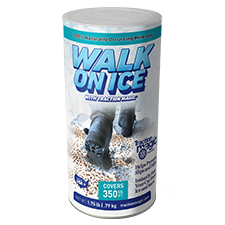Is Limestone As A Construction Material Good For Your Driveway – Pros And Cons
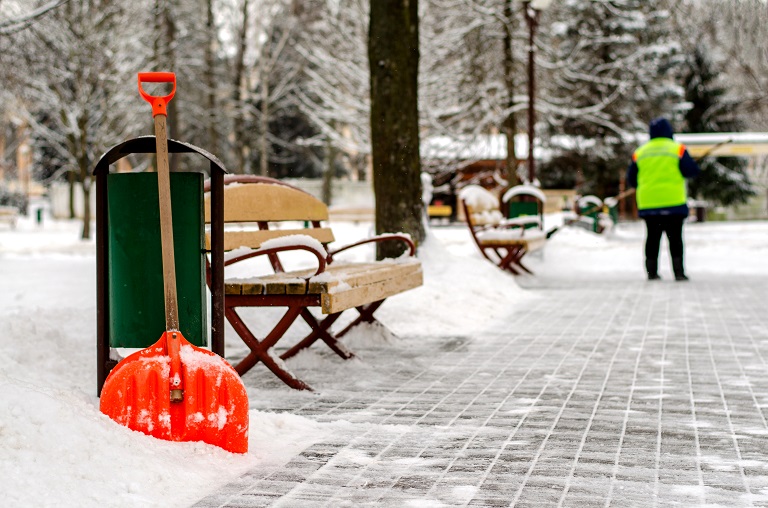
Limestone has become a popular construction material for driveways due to its durability and ease of installation. It is a sedimentary rock that is composed of calcium carbonate fossils. Limestone is formed by the accumulation of marine organisms and then consolidated over time into sediments, which were subsequently cemented together. Calcium carbonate is the main component of limestone and can be mined from mines in many parts of the world. In this article, we will discuss some pros and cons of using limestone for driveways and the best ice melt for limestone.
Understanding the Uses of Limestone
Limestone, a sedimentary rock composed mainly of calcium carbonate, has a wide range of applications in construction and landscaping. One of its primary uses is for creating durable and visually appealing driveways. Here are some key benefits of using limestone for driveways:
- Durability: Limestone for driveways is a robust and long-lasting material, making it an excellent choice for driveways. It can withstand heavy loads without cracking or breaking, making it ideal for vehicles and foot traffic.
- Aesthetic Appeal: Limestone driveways have a natural, elegant appearance. Their light color and texture can complement various architectural styles and landscaping designs, enhancing your property’s curb appeal.
- Cost-Effective: Compared to some other driveway materials, limestone for driveways is often more budget-friendly. It offers a high level of value for its cost, especially considering its durability.
- Low Maintenance: Maintaining limestone driveways is relatively simple. Regular sweeping and occasional regrading can keep it in excellent condition.
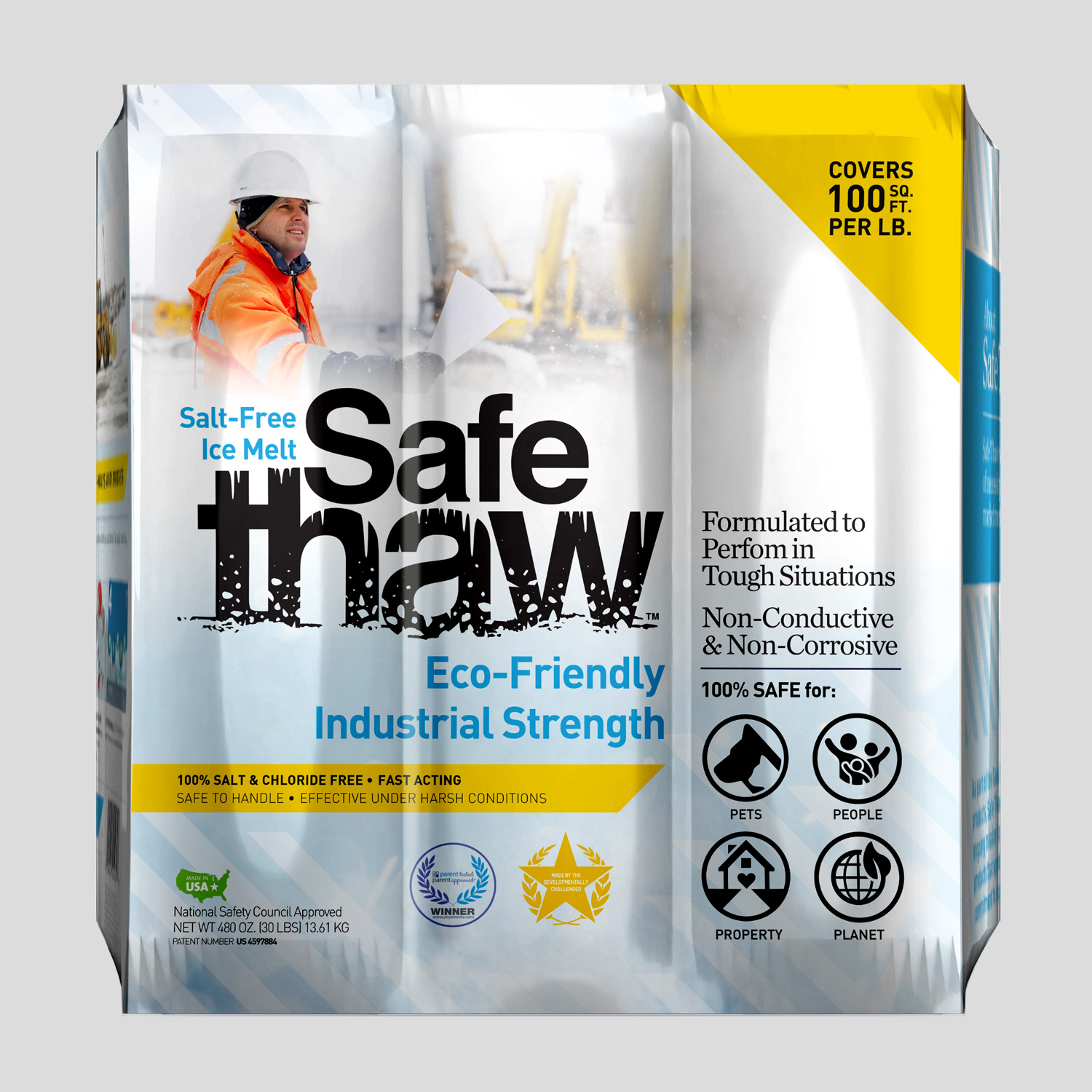
Safe Thaw
Safe Thaw was created as the ice management solution for tough winter environments. Ideal in commercial and industrial properties, shops, government agencies, bridges, and construction.
What Is the Best Base for a Driveway?
The base of your driveway is a critical factor in its longevity and performance. For driveways, a well-prepared and properly compacted base is essential. Here are some common base materials used for driveways:
- Crushed Stone: Crushed stone, such as limestone or granite, is a popular choice for creating a solid and stable driveway base.
- Gravel: Gravel is cost-effective and can serve as an excellent base material when properly compacted.
- Limestone: Limestone itself can also be used as a base material for driveways, especially when crushed into smaller sizes.
The choice of the best base material depends on factors like soil type, local climate, and your budget. Consult with a professional to determine the most suitable option for your driveway project.
Protecting Your Limestone Driveway in Winter
Winter weather can be tough on driveways, including those made of limestone. Snow and ice accumulation can lead to slippery and potentially hazardous conditions. While it’s tempting to use traditional salt-based ice melters, they can harm your limestone driveway and surrounding vegetation.
Safe Thaw offers a safer and more effective alternative. This chloride-free ice melt is designed to be gentle on your driveway while effectively melting ice and snow. It’s also safe for pets and the environment, making it an excellent choice for environmentally conscious homeowners.
Best Ice Melt For Limestone Driveway
Ice melts can be hazardous, especially when they contain harmful chemicals such as chloride. If you have a limestone driveway, you can skip the chemicals and use Safe Thaw instead. This ice melt is free from any toxic ingredients, so it will not damage the surface of your driveway. It is considered the best ice melt for thick ice and is safe to use around kids and pets.
100% salt & chloride-free, fast acting Ice Management Solution
Pros Of Having A Limestone Driveway
- Can withstand heavy loads: Limestone is a strong, durable, and heat-resistant material. When subjected to heavy loads and high temperatures, it does not crack or crumble easily. The following are some of the reasons why you should consider using limestone for your driveway:
- Highly resistant to weathering: Limestone pavers are highly resistant to weathering due to their high tannin content. They are perfect for areas that experience heavy downpours or snowfall. Limestone is a sedimentary rock composed of calcium carbonate fossils, which means it can last longer than other types of paving materials such as granite and concrete.
- Can withstand frost-freezing cycles: Limestone can withstand frost-freezing cycles without chipping off if properly installed with adequate support underneath it during installation.
- Soil Stabilization: Lime can improve the stability of the soil beneath your driveway, reducing the risk of settling or uneven surfaces.
- Added Durability: Mixing lime with other materials, such as gravel, can increase the driveway’s overall strength and resilience.
However, it’s important to note that lime is not the same as limestone. Lime is typically used in the form of lime powder or quicklime and should be applied carefully following expert recommendations.
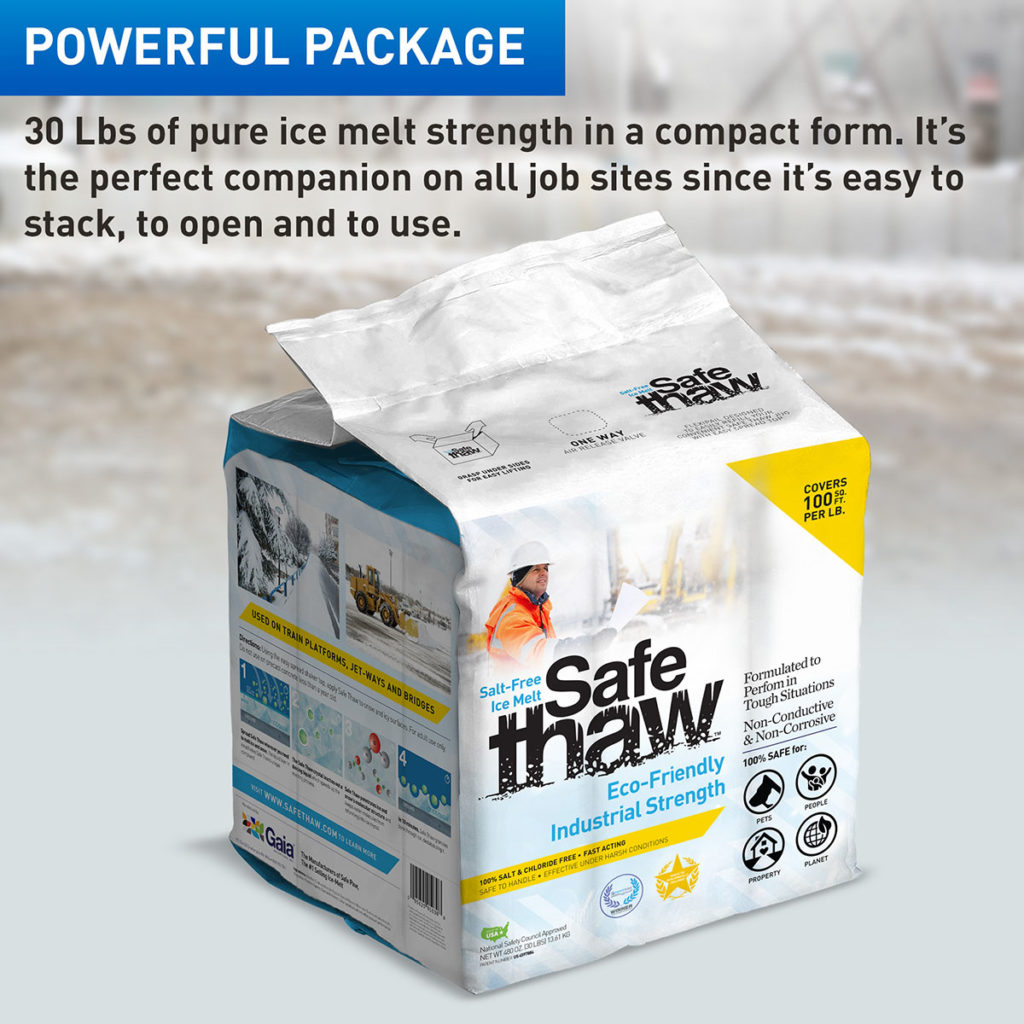
Safe Thaw
Safe Thaw was created as the ice management solution for tough winter environments. Ideal in commercial and industrial properties, shops, government agencies, bridges, and construction.
Cons Of Having A Limestone Driveway
As with any material, it’s worth considering the disadvantages of using limestone for your driveway. While many people love its natural beauty and durability, it has some drawbacks that may be of concern to you.
- Limestone can be very slippery: Limestone is porous and absorbs oil from car tires and feet. Therefore, it can become slippery when wet. If you live in a cold climate where ice is common after winter thaws, this can lead to accidents if someone slips on your driveway. It also means that you’ll need to use more detergent when washing your vehicle or cleaning up spills in order to keep down the amount of oil absorbed into the stone surface.
- Brittle and prone to cracking: Limestone is brittle and prone to cracking if not properly supported when installed. For example, if you lay your driveway surface over a dirt base with no proper sub-base support beneath it, the limestone could crack as the water in the soil expands during freezing weather conditions. Limestone is a great choice for your driveway if you want something durable and looks good. It’s best suited for areas with high levels of moisture or frost, but if installed correctly, it can withstand these conditions too!

FAQs
Try Also Our Other Winter Safety Products:
Traction Magic
Stay safe on slippery surfaces with a product that’s 100% natural and safe for pets, people, and your property. Whether it’s sidewalks, steps, or even your car’s traction, Traction Magic is the go-to choice.
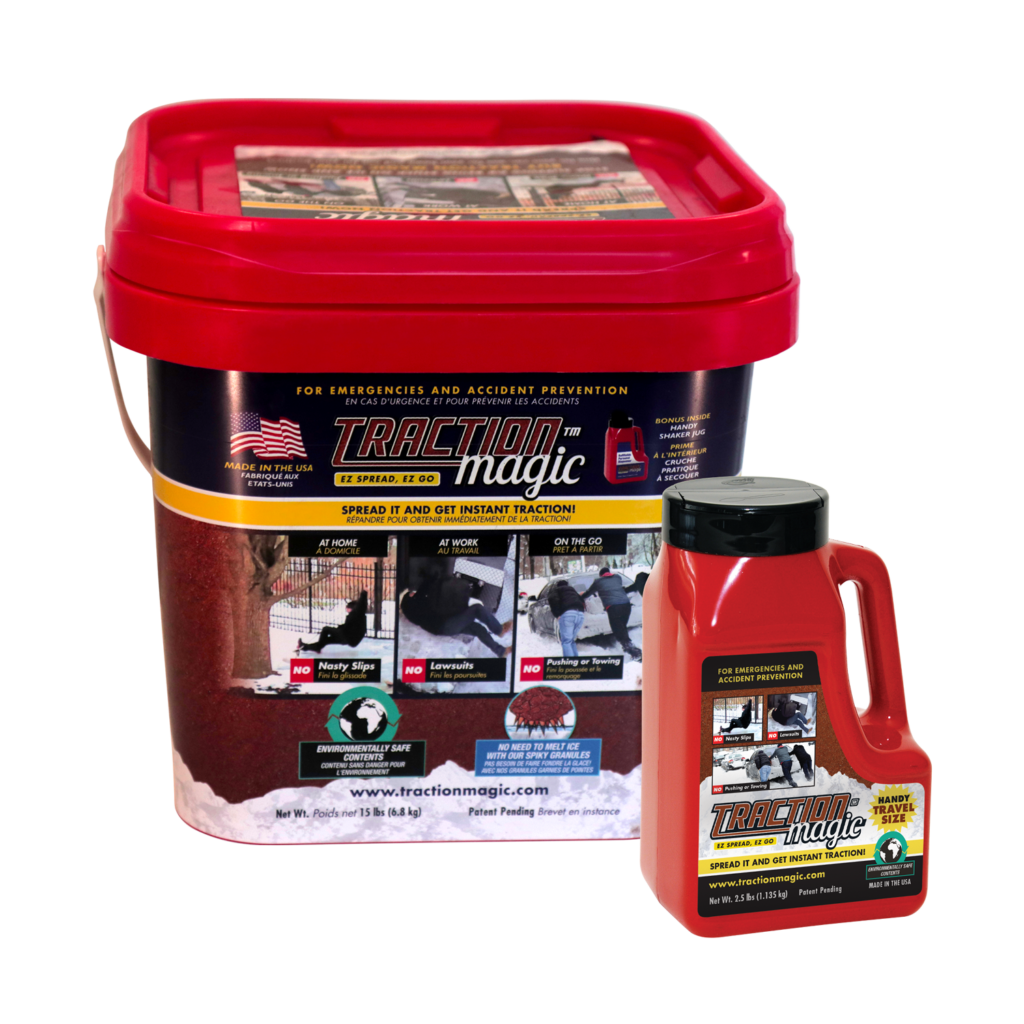
Walk On Ice
The handy disposable canister can be taken everywhere, with the same 100% naturally occurring minerals that provide instant traction on ice or snow. Use it on sidewalks, steps, or as an instant traction agent for your car.
